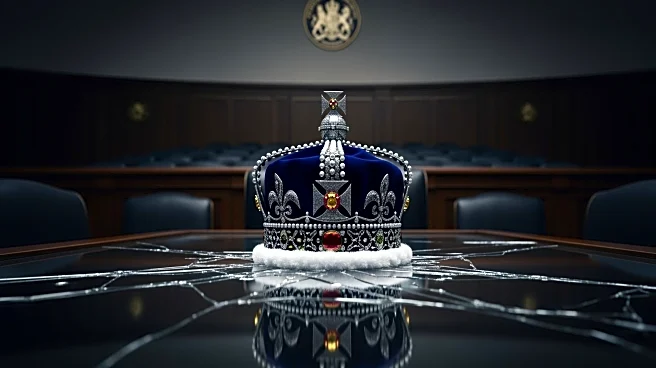What's Happening?
Congress has requested Andrew to testify in the ongoing investigation into the Epstein case. This development comes as Andrew is no longer recognized as a prince, marking a significant shift in his status. The investigation into Epstein's activities has been
a major focus, with various high-profile individuals being scrutinized for their connections to the disgraced financier. The call for Andrew to testify indicates the seriousness of the probe and the potential implications for those involved.
Why It's Important?
The request for Andrew to testify in the Epstein investigation underscores the gravity of the case and its far-reaching implications. The removal of his prince title signifies a notable change in his public standing, which could affect his influence and reputation. This development may have broader implications for the royal family and its relationship with U.S. authorities. The investigation continues to draw attention to issues of accountability and justice, particularly concerning high-profile figures.
What's Next?
As the investigation progresses, Andrew's testimony could provide crucial insights into the Epstein case. The outcome of his involvement may influence public perception and legal proceedings related to the case. Stakeholders, including legal experts and public figures, are likely to monitor the situation closely. The investigation's findings could lead to further actions against individuals connected to Epstein, potentially impacting international relations and public trust.
Beyond the Headlines
The stripping of Andrew's prince title raises questions about the ethical and cultural dimensions of accountability for public figures. This case highlights the challenges of balancing personal reputation with legal obligations. The investigation may prompt discussions on the role of privilege and power in legal processes, influencing future policies and societal expectations.















